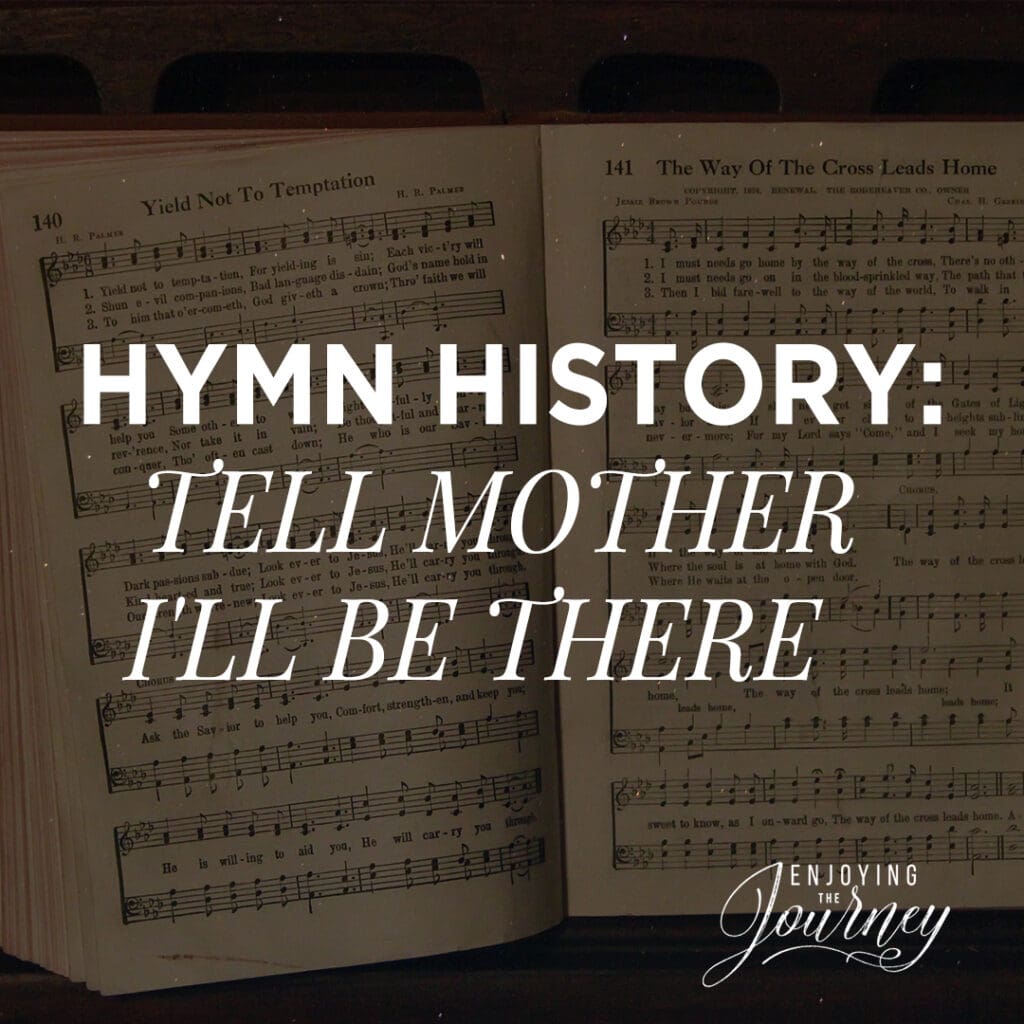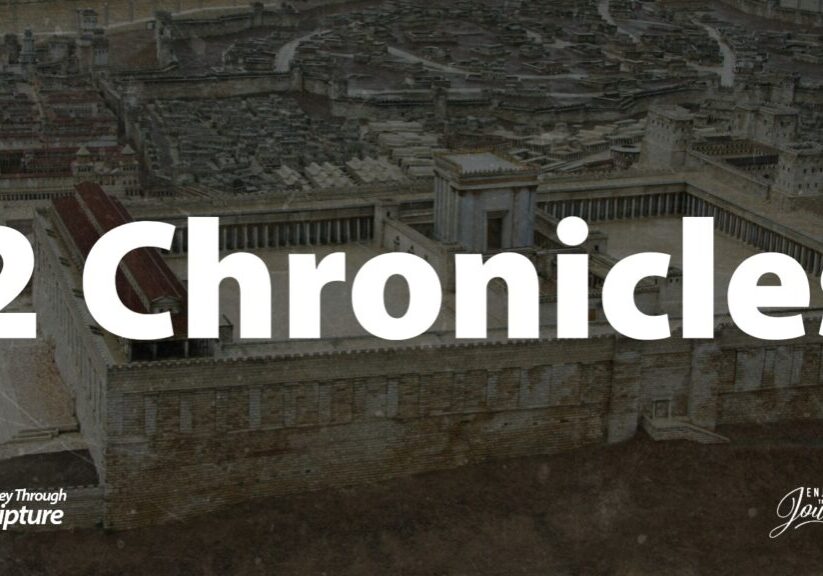
“Thy father and thy mother shall be glad, and she that bare thee shall rejoice.” – Proverbs 23:25
We are thrilled to share a series of brief accounts of how some of the great hymns of our faith were written. Each synopsis has been compiled through the research of Jerry Vargo and is shared by permission. It is our hope that these stories will be a help and encouragement to your Christian walk. This week we read the moving and powerful story behind the stirring hymn, “Tell Mother I’ll Be There.”
_________________________________________________________________________________________________________
There was a saintly old woman who lived in Canton, Ohio whom everyone called Mother McKinley. She and her husband raised 9 children in the nurture and admonition of the Lord, each one receiving Christ at an early age. As soon as they could walk, they strolled with her along the sidewalks on their way to Sunday school and church.
One of her children became famous – her 7th child, a son. He had a Christ-like spirit in everything he accomplished. He became a Sunday school teacher, Sunday school superintendent, lawyer, governor, congressman, and the 25th president of the United States – William McKinley.
William married, and in time his wife became an invalid. Possessed of a fragile, nervous temperament, Mrs. McKinley broke down under the loss of her mother and two young daughters within a short span of time. She developed epilepsy and became totally dependent on her husband. Her seizures, at times, occurred in public; she had one at Governor McKinley’s inaugural ball. Although she would be an invalid the rest of her life, she kept busy with her hobby: crocheting slippers. She made gifted thousands of pairs to friends, acquaintances and charities, who would auction pairs for large sums.
When William was the governor of Ohio, the governor’s quarters were across the street from the capital building. Every day when he left the governor’s mansion and crossed the street, he would pause on the steps of the capital building, turn around and look at his residence and tip his hat to his wife. She was always watching him go to work from a window in her room. At a designated time each afternoon he would look out his window from the capital building and wave to her. Because of her condition, when he was campaigning to become the president of the United States, he would not go on lengthy campaign trips. Instead, he chose to do “front porch” speeches from his home so he could tend to his wife’s needs.
On September 6, 1901, William McKinley, the 25th President of the United States, was assassinated on the grounds of the Pan-American Exposition at the Temple of Music in Buffalo, New York. He was shaking hands with the public (against the advice of his security team). Suddenly, Leon Czolgosz, an anarchist, shot him twice in the abdomen. McKinley died eight days later on September 14 of gangrene caused by the gunshot wounds. He was the third American president to have been assassinated, following Abraham Lincoln in 1865 and James A. Garfield in 1881.
Czolgosz had lost his job during the economic Panic of 1893 and turned to anarchism, a political philosophy adhered to by recent killers of foreign leaders. Regarding McKinley as a symbol of oppression, Czolgosz was convinced that it was his duty as an anarchist to kill him. Unable to get near the President during the presidential visit earlier, Czolgosz shot McKinley twice as the President reached to shake his hand in the reception line at the temple. Czolgosz bandaged his arm in a sling which disguised a pistol he had in his hand. One bullet grazed McKinley; the other entered his abdomen.
As the President fell to the ground after being shot, Secret Service agents grabbed the assassin and started to beat him. President McKinley pushed himself up on one arm and told the agents, “Let no man hurt him”. One week later, President McKinley died in the hospital.
The most impressive trait from his life is his love and devotion to his mother. Every day of his life, until his mother’s death, he either wrote or sent a telegram to her. Sensing her death was nearing, President McKinley took a train from Washington, D.C. back to Ohio so he could walk one more time with her to Sunday school and church like he did as a child. Mother McKinley took ill the following winter. A special telegraph cable was set up between her home and the White House. Relatives were instructed to telegraph the President if her condition worsened. A special train was ready in Washington to take the President to see his mother when the time would come.
Finally, he received a telegram from relatives that said if he wanted to see his mother before she died, he needed to come quickly. He sent a telegram back to Ohio with the words, “Tell mother I’ll be there”.
The train rushed to Ohio in time for the President to briefly talk to his mother and witness her last breath. She died cradled in her son’s arms as he knelt by her bedside. President McKinley stayed kneeling at her bedside for an hour after she died praying to God, thanking Him for his precious mother.
Charles Filmore was inspired by the life of President McKinley and upon reading the story of the President’s mother’s death wrote the words to the hymn Tell Mother I’ll Be There based on the words of the telegram.
Five prominent publishers turned down the song. Charles Alexander, who was the music director for R.A. Torrey, carried the song in his briefcase for two years for future consideration.
One Sunday evenin, at a revival meeting for railroad men, Charles needed an invitation song. The song Where is My Wandering Boy Tonight was used too often and Charles wanted something else to use for the invitation. His mind turned to the song Tell Mother I’ll Be There and hundreds responded to the invitation. Charles told in his biography that in the years to follow Tell Mother I’ll Be There brought more men to Christ than any other invitation song he used.
Lyrics:
1. When I was but a little child how well I recollect
How I would grieve my mother with my folly and neglect
And now that she has gone to Heaven I miss her tender care
O Savior tell my mother I’ll be there (Refrain)
(Refrain) Tell mother I’ll be there in answer to her prayer
This message blessed Savior to her bear
Tell mother I’ll be there heaven’s joys with her to share
Yes tell my darling mother I’ll be there
2. Though I was often wayward she was always kind and good
So patient gentle loving when my ways were rough and rude
My childhood grief’s and trials she would gladly with me share
O Savior tell my mother I’ll be there (Refrain)
3. One day a message came to me it bade me quickly come
If I would see my mother ere the Savior took her home
I promised her before she died for heaven to prepare
O Savior tell my mother I’ll be there (Refrain)
Discover more from Enjoying the Journey
Subscribe to get the latest posts sent to your email.






